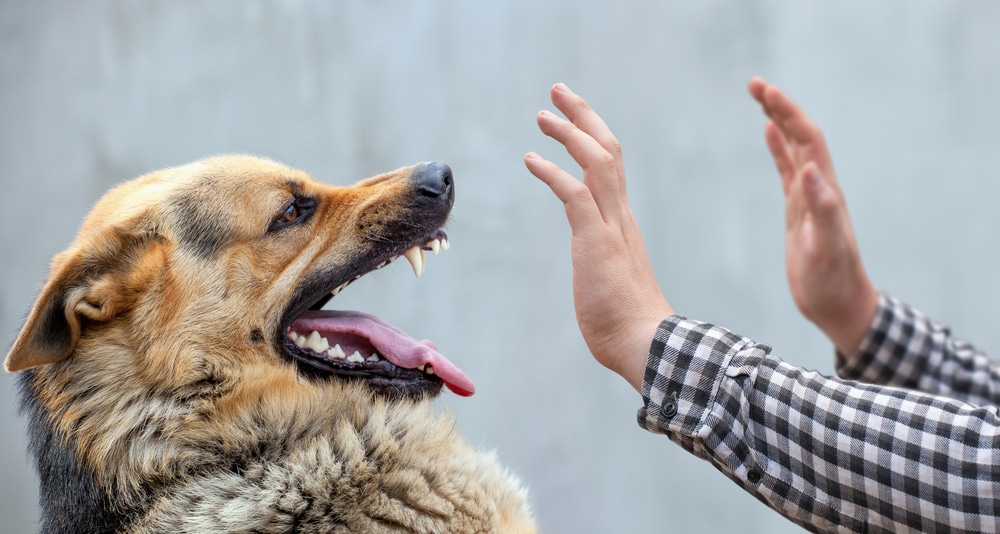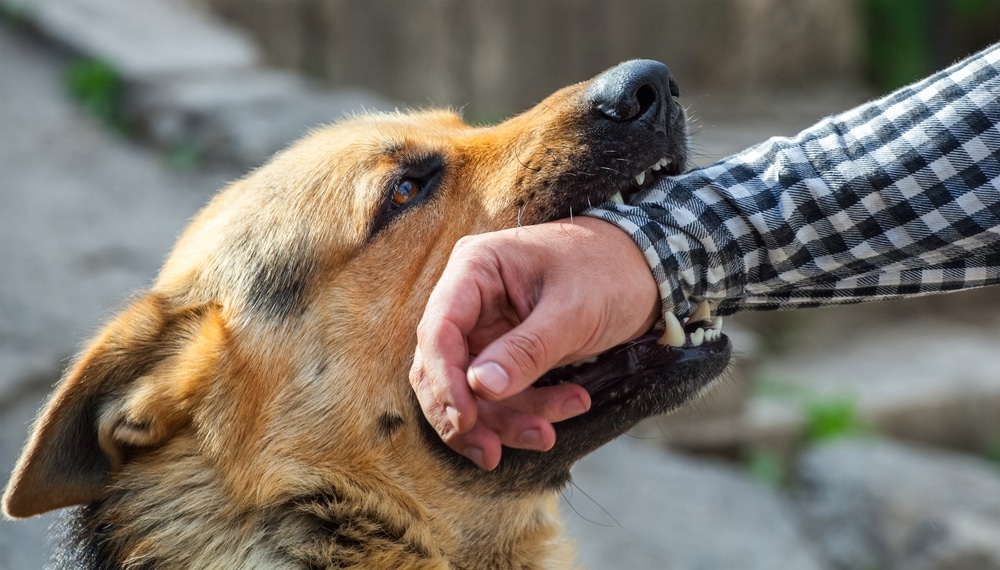Dogs are playful, loving, and inquisitive companions always sniffing around, inspecting objects, and people. Sometimes they don’t like what they smell and can act a bit strange, such as in the case of alcohol. So, if you’re wondering why your dog bites you when you drink alcohol, we’ll explain so it makes sense!
Dogs often bite their owners who drink alcohol or try to get away from them because of the intense smell, which they don’t like. Moreover, dogs sense behavioral changes in their human owners, and those changes can make a dog nervous.
Table of Contents
- Why Don’t Dogs Like Alcohol?
- What Makes A Dog’s Sense Of Smell So Powerful?
- How Does A Dog’s Behavior Change When It Sense Alcohol?
- How Do Dogs React To Alcoholics?
- In What Ways Does Your Hangover Affect Your Dog?
- Is Alcohol Bad For Your Dog’s Health?
- How To Prevent Negative Behavioral Changes In Dogs Exposed To Alcoholics?
- Conclusion: My Dog Bites Me When I Drink Alcohol
Why Don’t Dogs Like Alcohol?
Dogs have a strong sense of smell and therefore the intense odor of fermented alcohol from a drinker’s breath or clothes can irritate a dog. A dog’s sense of smell is at least 10,000 times better than a human’s. Moreover, alcohol is bad for a dog’s health. So, thankfully, they’re not likely to drink it because their ultra-sensitive nose helps keep them away.
What Makes A Dog’s Sense Of Smell So Powerful?
A strong sense of smell is what enables a dog to track the scent of objects or people located miles away. This ability is linked to a dog’s nose, which is equipped with around 300 million olfactory (smell) receptors compared to our 6 million receptors.
Moreover, part of the dog’s brain devoted to sensing odor is 40 times more developed than humans. All these features make a dog an excellent sniffer.
How Does A Dog’s Behavior Change When It Sense Alcohol?

When dogs smell the intense odor of alcohol, it can make them nervous and even frantic. A dog may exhibit a range of behaviors including but not limited to barking, biting, making odd faces, or even running away. Alcohol may induce a tense feeling of danger resulting in agitation and aggression in some dogs.
How Do Dogs React To Alcoholics?
Dogs may bark, run, or even bite a drunk on sensing alcohol from their breath or clothes. Moreover, the strange behavior of a drunk owing to a hangover can alarm a dog, making it even more anxious. This can result in a bite.
In What Ways Does Your Hangover Affect Your Dog?
An alcohol hangover can be defined as the combination of physiological and neuronal changes that alters a person’s behavior towards others.
Alcohol consumption increases irritability and reduces inhibition( control of emotions), resulting in behavioral changes like aggression, uncontrollable desires, and lack of attention to others.
Dogs are affected negatively by all of this. It’s not just that owners seem vastly different to them, but they can also face neglect and abuse from drunk owners. This affects a dog at a psychological level and is one of the leading causes of negative behavior and anxiety in dogs.
Is Alcohol Bad For Your Dog’s Health?
Alcohol is bad for your dog’s physical and mental health. It has devastating effects on canine physiology. Alcohol toxicity can cause a range of clinical signs linked to the digestive, respiratory, and nervous systems.
Severe cases of acute toxicity can even result in death. Nausea, vomiting, diarrhea, hypersalivation, and tremors are some of the signs that can appear after alcohol ingestion.
How To Prevent Negative Behavioral Changes In Dogs Exposed To Alcoholics?
Behavioral changes in dogs exposed to alcoholics can be prevented by dog owners taking responsibility and preventing contact of dogs with habitual drinkers in family and friends.
However, if the owners themselves like to drink, they must schedule it at times when the dog is not around.
Moreover, highly addicted dog owners must seek help in rehabilitation centers, leaving their dogs with a friend to avoid the emotional abuse of dogs exposed to alcohol hangovers.
Conclusion: My Dog Bites Me When I Drink Alcohol
In a nutshell, alcohol is bad for a dog, and dogs hate alcohol thanks to their superior sense of smell. A dog’s dislike of alcohol odor and the anxiety due to witnessing the bizarre behavior of drinkers can lead a dog to display signs of aggression, such as biting. Therefore, we must be careful when drinking close to our furry companions.
Did this surprise you? Do you have any stories about your dog reacting to alcohol? Let us know your thoughts and why in the comments below!
